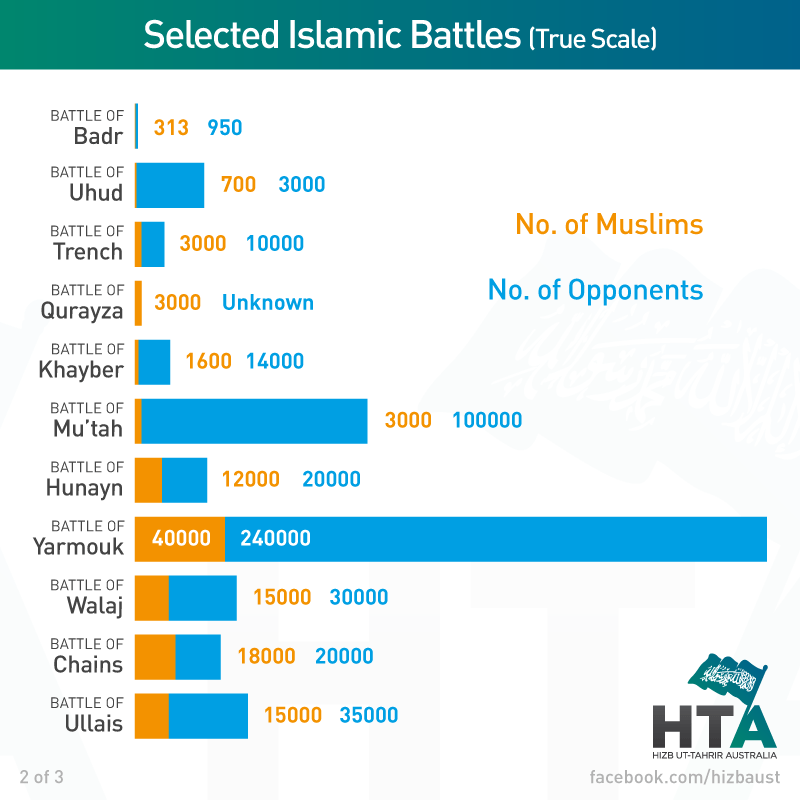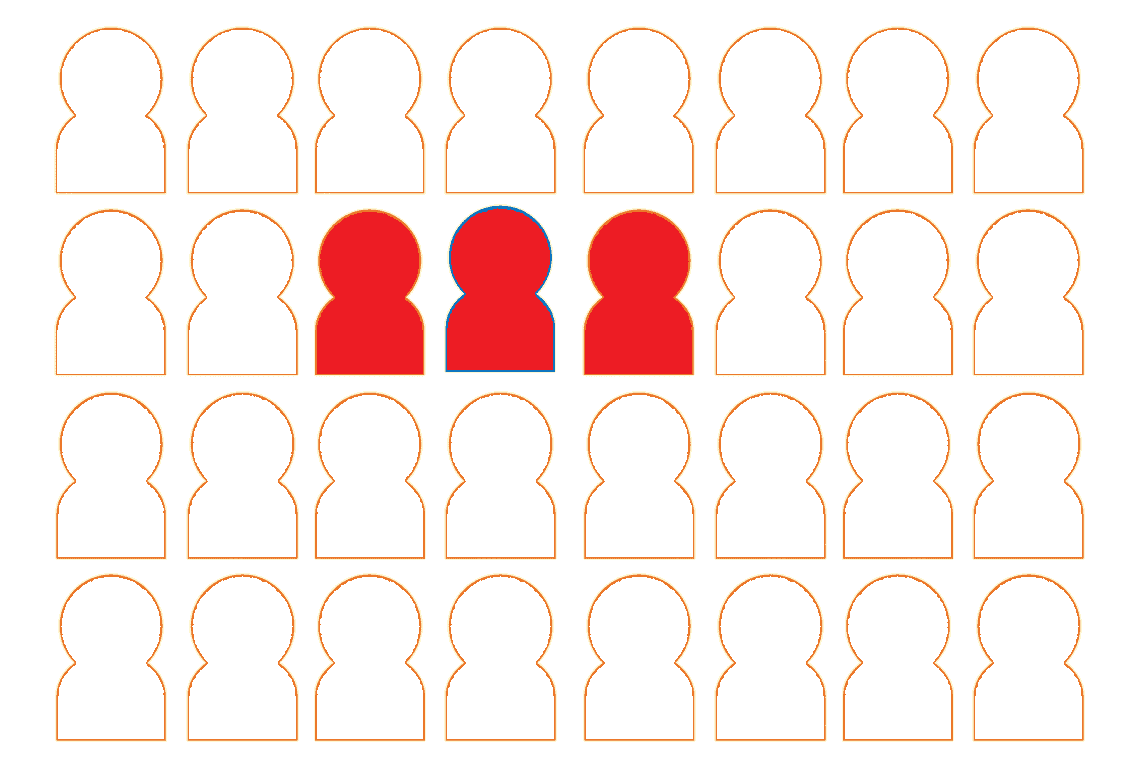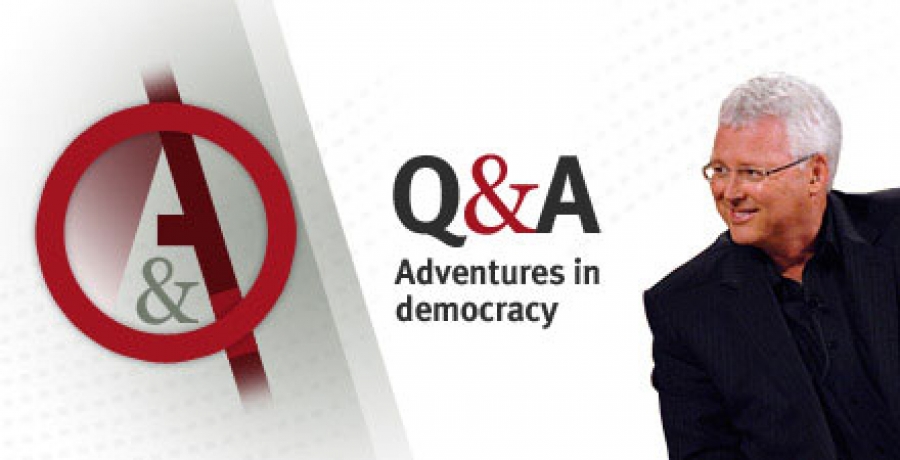The notion that we must initiate change for positive change to occur is fundamentally important. However, the conclusion that everyone (or even a large majority) must change for the collective to undergo change (at a systemic or political level) does not follow from this and is a notion that is open to challenge. It is a conception that goes against historical reality and textual evidence, albeit it is one that is present today in some elements of the ummah.
This article, the 1st of 3 in a series, looks at this notion and argues that societal change is not predicated on universal individual change, and that to hold this position is a misreading of politics, history and indeed the divine texts.
Changing societies is a work of the highest order in Islam. It is the work of the Prophets, may Allah be pleased with them all. It is the work of transforming societies rife with corruption, immorality, ignorance and injustice to becoming societies of justice, moral elevation, knowledge and integrity in line with divine instruction and guidance.
Historically it has never been the case that most, let alone all, of the individuals of a society have changed first to be followed by collective change, be it in the sphere of spiritual advancement, economic progress, or political change. Rather, it has always been the case that a small minority has led the collective to greener pastures, as it were.
This applies to nearly all political revolutions (and indeed counter-revolutions) the world has seen throughout history, most of which were led by intellectuals, thinkers and so forth at the vanguard of society. The Enlightenment and Industrial Revolution, to take an example of economic/scientific “progress” specifically (putting aside the merit of this progress momentarily), was propelled by a small band of intellectuals, thinkers and philosophers. They were able to convince enough common people as needed to propagate their vision, and affect enough of those in power to implement the changes to the economic sphere that made this a self-perpetuating, world-changing phenomenon (albeit at incredible cost and horror experienced by much of the world). The vast majority and swathes of the masses of Europe, meanwhile, did little but adapt to the change that came their way in this period.
In our own history we see the same essential process. The model and most significant periods of change were those ushered in by the prophets of Allah, calling as they did to the correct worship and obedience of the Creator, which is the highest form of change possible, and often met with incredible resistance from those in power.
No prophet was able to convince all his people, even with the clear signs they brought. They were only ever able to win the hearts and minds of a small minority, with whose help, followed by victory from Allah, they were able to establish their call and implement the deen. This reality has been so well chronicled as to need little in the way of evidentiary proof: it is known to have been the case with the Prophets and the challenges they faced in their da’wah.
As for the textual perspective, what is relevant here are the many verses of the Qur’an in which Allah speaks about the provision of His support and victory (nusrah) to the believers, the indication of all of which is that Allah will give the nusrah to those who adopt certain qualities, with no requirement (in any textual proof) that everyone do so.
Allah has promised those who have believed among you and done righteous deeds that He will surely grant them succession [to authority] upon the earth just as He granted it to those before them and that He will surely establish for them [therein] their religion which He has preferred for them and that He will surely substitute for them, after their fear, security, [for] they worship Me, not associating anything with Me. But whoever disbelieves after that – then those are the defiantly disobedient [Surah Nur ayat 55].
Commenting on this ayah, the late and great mufassir Mufti Muhammad Shafii says:
Allah had made three promises to the Prophet ﷺ: that his ummah will be made His vicegerent on Earth and will rule over it, and His favoured religion Islam will be made victorious, and Muslims will be given so much power and grandeur that they will have no fear of any one.
…The fact of the matter is that the conditions of faith and righteous deeds, on which this promise was made by Allah, was present in the sahabah to perfection [Ma’ariful Quran].
Commenting on the same ayah, Imam Al Shawkani said:
This is a promise from Allah to those who believed in Allah and performed good deeds, that he will grant them authority over the whole world, as he did grant it to former nations. This promise applies to the whole of the Ummah. By some it has been claimed that the promise was specific to the sahabah, but there is no proof to substantiate such a claim, for the belief and the performing of good deeds is not restricted among the sahabah, but open to every individual from among the Ummah [Fath al Qadeer].
Another ayah on the topic:
And if you obey the majority of those on earth, they will make you lose the way of Allah . They follow nothing but whims, and they do nothing but make conjectures [Surah Anam, ayat 116].
Mufti Muhammad Shafii says about this ayah:
…Allah tells the Prophet ﷺ that the majority of the progeny of Adam living on earth is in error. Let him not be overawed by this situation and let him ignore what they say or do. The Quran has dealt with this subject in many places. In Surah al Saffat it is said “And truly before them many of the ancient went astray” [37:71]. In Surah Yusuf it is said “And the majority of people, even if you wish, are not to be believers” [12:103].
The outcome is that the awe of the majority customarily overwhelms an individual and he or she ends up following it.
…The advice is that he should not be impressed by their numerical majority as a model to follow because they lack principles and go off the right way. In the next ayah it was said: “Surely your Lord knows best who go astray from His way, and He is the best knower of those who are on the right path” [Surah Anam, ayat 117], and as those who are in error shall be punished, the people of the straight path shall be rewarded [Maariful Quran].
The Messenger of Allah ﷺ himself was “only” able to win a couple of hundred people after thirteen years of da’wah in Makkah (and that was the best da’wah possible).
En masse, the Makkan people did not accept him, and its leaders forced him out. But with this small band of believers, whilst undergoing much persecution and false propaganda, he ﷺ sought the nusrah (material support) from the tribes of Arabia, and when Allah willed, He sent it in the form of the leaders of two tribes from Madinah. Thus, after making hijrah he ﷺ reached a position of power and authority with a relatively small following, and from that position he was then able to implement the deen and spread it like wild fire.
And there has to be a group of people from among you who call towards the good and bid the fair and forbid the unfair. And it is these who are successful [Surah Aal Imran: 104].
Mufti Muhammad Shafii said about this ayah:
The first part of the ayah, “And there has to be a group of people from among you”, gives a hint that this group is necessary……because the vital role of the ummah depends on the existence of such a group. As for ‘And it is those who are successful’, this means that in reality, success is achieved by such people alone (regardless of their number)” [Ma’ariful Quran].

A comparative scale of early Islamic battles. Click the image to read more. These comparisons show that believers have never needed superiority in numbers either in order to establish societal change or indeed to successfully propagate the deen.
[Read more: InfoGraphs – Comparative numbers in early battles of Islamic history]
So not only is there revelation that indicates that the majority of people will be away from the truth (so it is an impossible condition that the “iman of the majority” first be solid for real/political change to occur, as some have claimed), there is explicit revelation that indicates that change will happen through a group of people who enjoin good and forbid wrong, and that Allah will give success to this group of people. This is not to say that everyone adopting these qualities is not an ideal, but that the persistence of some on bad qualities does not deprive the group of people who do respond to the call of Allah from His support and victory.
![]()















